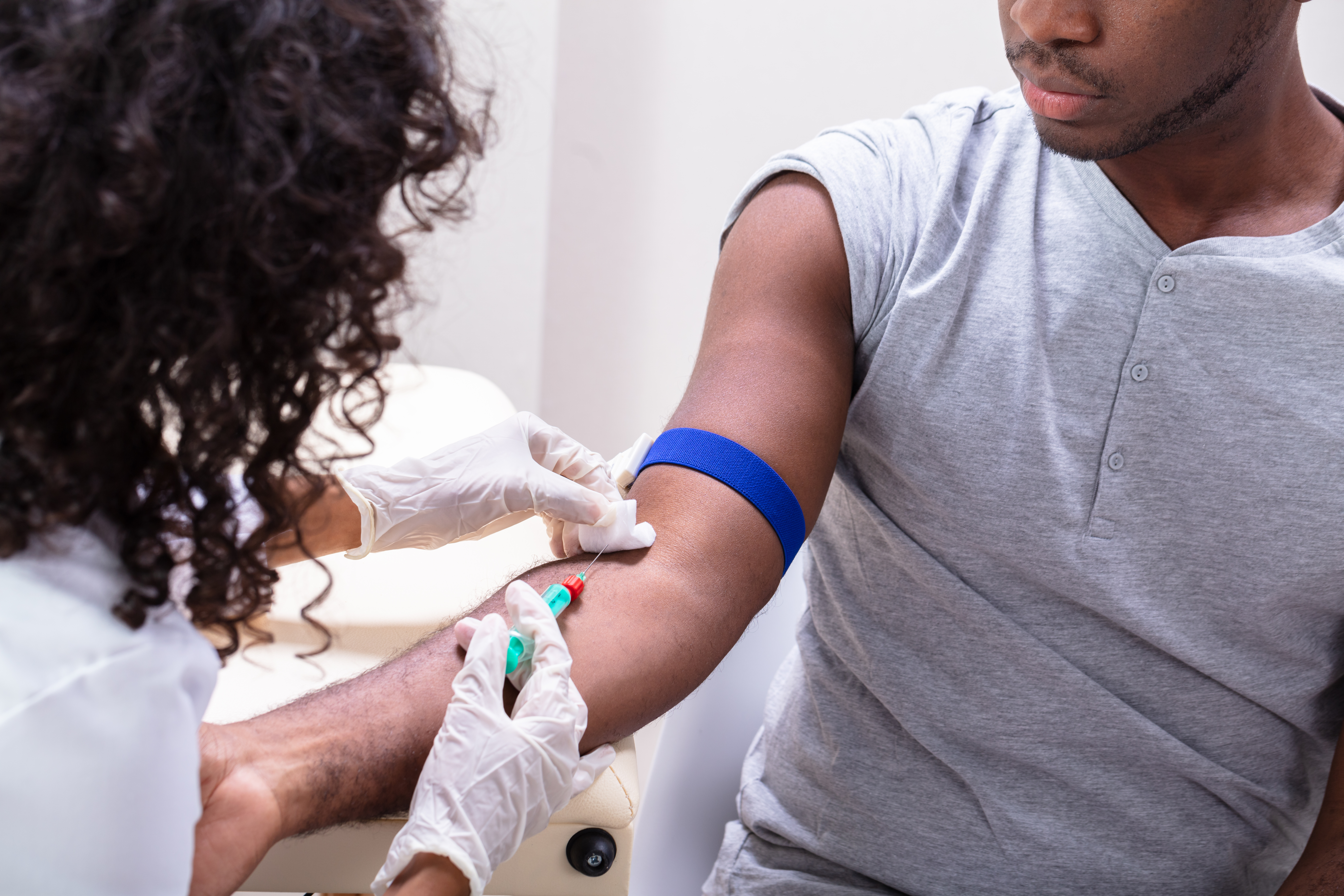The author, who leads discussion groups with Black men, writes about why he’s pushing himself and others to talk about HIV and take away the stigma from getting regularly tested.

By Martin Henson
Beacon Media
In 2023, 52% of all newly diagnosed HIV cases among adults and adolescents in North Carolina were Black.
This fact doesn’t make for polite conversation in the Southern Bible Belt, and it’s not comfortable in most spaces in general. North Carolina is a basketball state, so I suppose I could work HIV testing into a conversation about NBA Hall of Famer Magic Johnson, who destigmatized living with an HIV positive diagnosis. “Hey, Magic is the best point guard of all time — I remember he had HIV, right?”
And then I’d say: “By the way, when was the last time you got tested?” Would this approach be corny? Yes. Effective? I’m not sure.
Trump’s recent “Big Beautiful Bill” and its looming cuts to Medicaid, meaning more people will be less likely to get any medical care and do things like HIV tests, make me wonder if I should be integrating getting tested into my conversations … no matter how clumsy I sound.
My yearly primary care visit came just in time for National HIV Testing Day on June 27th.
Why did I feel awkward requesting the test?
It should be routine for anyone engaging in sexual activity, but it is not. After I got tested, I realized that I rarely talk about STD testing with people in my community. I do regularly run men’s groups where topics can range anywhere from the NFL to grieving the loss of loved ones. Topics can be heavy there, making it the perfect time. Yet, it hasn’t happened.
There is a silent epidemic of HIV, marked by stigma and long incubation periods before visible symptoms, that is only getting worse. HIV landed on my radar due to my work with Black men, who meet the same intersections of culture, masculinity, and healthcare that HIV often impacts.
There are 1.2 million people in the U.S. living with HIV. That number doesn’t scare me. What scares me is the 13% of people who don’t even know they have it, according to the U.S. Centers for Disease Control. One in five people in the U.S. are tested so late for HIV that the disease has already progressed to AIDS.
With many counties in North Carolina being classified as Health Professional Shortage Areas – areas with a shortage of care providers—specialized HIV care will be one of the first services to go.
More people are impacted than many people realize, since the lack of healthy dialogue around it causes society to rely on outdated information about HIV transmission. HIV rates are rising among heterosexual couples, who can transmit the virus through unprotected sex—challenging the outdated assumption that HIV only affects LGBTQ men.
The federal government cut funding for the Health Resources and Services Administration (HRSA) Ryan White Program in half. I think of how this affects the men in my community who will never publicly disclose, the ones who my public conversations may help.The lack of funding for the Ryan White Program, combined with the incoming Medicaid cuts, will likely harm those who are uninsured, low-income, and living in rural areas.
Also, there are so many other things to worry about for North Carolinians that feel more pressing: the recent floods, the closing of rural hospitals, cuts to food stamp benefits. My outlook is likely a part of the problem, since the HIV conversation is more important than the little attention I give it.
I wish that vague memories of the early ’90s AIDS crisis were the only things that scare me about HIV. I know HIV is no longer a terminal disease thanks to advances in healthcare. I also know that stigma still prevents people from getting tested, and Black men, along with many other communities, are dying from a preventable progression of the disease into AIDS.
I asked my primary care doctor for an HIV test, and with the current landscape of healthcare, I believe everyone else should too.
What do we do about it?
The most powerful thing you can do right now to combat this crisis in HIV treatment is to get tested, and more importantly, tell people about it. I really don’t need a Magic Johnson reference to start the discussion; I already operate in enough trusted spaces to begin the conversation. I haven’t been, but it’s time for me to pick it up. Start a dialogue about where to get tested. This is how we save lives.